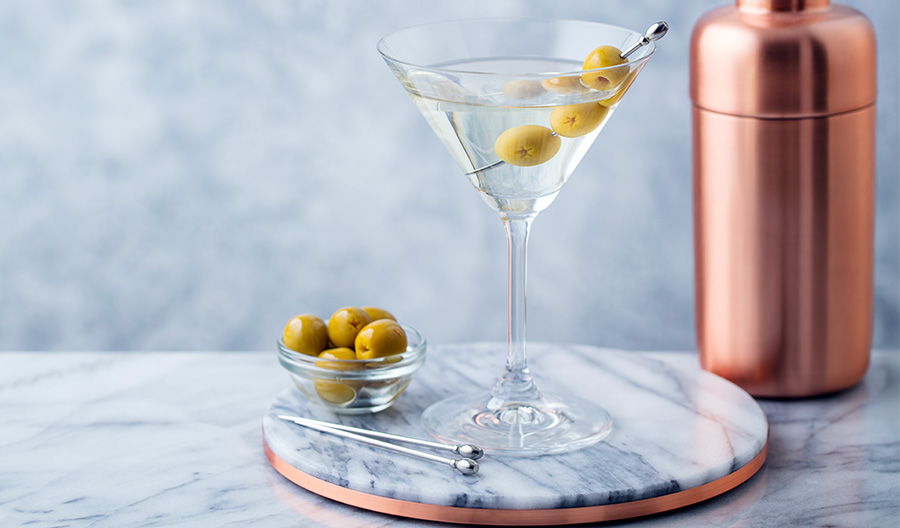Drinks like the Gibson, Martinez, Diplomat, Caprice, Ford, and Tuxedo represent gin-based classics from the Martini family tree, but many menus also give vodka—a spirit either loved or maligned, depending on the Martini drinker—its due. This approach lets people realize the full scope of what a Martini can be, realizing vodka’s potential in the most classic of cocktail forms (and one that’s currently undergoing a revival).
Vodka is a misunderstood spirit. Many people think of it as flavorless and odorless. Instead, they should think of it as clean. Vodka Martinis allow you to take that clean freshness and not throw tons of sugar and herbs and fruit on it. You can let that spirit sing in a beautiful way.
Choosing a Vodka
Vodka Martinis fall into three categories: punchy, soft, and floral. Though their differences are subtle, selecting a vodka type will help achieve that character. For a punchy Martini, start with a rye-based vodka that is lean and dry with a hint of spice. Potato-based vodka has a lush, soft mouthfeel and hint of earth, and wheat-based vodkas lend a minerality and sweetness to their silky texture. Vodkas distilled from grapes often have citrus and herbal notes.

Vermouth, the Power Player
Without the botanicals of gin, vermouth is responsible for a great deal, if not all, of a vodka Martini’s complexity. For a potent and punchy Martini, use two and a half ounces of vodka to a half-ounce of vermouth, and add an extra half-ounce of vermouth for a more floral build. Vermouths that are velvety, fruity, and slightly sweet, soften and round a Martini’s texture. Likewise, a Spanish sherry-based vermouth has a bitter, nutty, briny quality that energizes softer vodkas.
Vodka as Flavor Extender
Vodka can also work to lengthen the flavor of potent vermouths and other modifiers. In the case of a 50/50 Martini, vodka “stretches out" vermouth’s botanicals across a greater volume of liquid, letting the flavors shine while boosting its ABV. Vodka allows you to present vermouth in a more expressive way. It’s not botanical-on-botanical, as with gin.
Vodkas plays in a similar manner with herbal and aromatic cognac-based liqueurs. These liqueurs are a big player in the world of classic Martini-style drinks. If you look in the history books, it’s there…the original recipe for the Gypsy Queen appeared in a 1938 cocktail book from The Russian Tea Room in New York, and combines wheat-based vodka, herbal liqueur and aromatic bitters - again extending the liqueur’s flavor over three ounces of spirits and taming its sweetness without obscuring the liqueur’s character.
When in Doubt, Mix 2:1
There is a tried-and-true formula for making a vodka Martini, and from that base, drink-makers, whether home bartenders or professionals, can start to dabble in more advanced techniques and ingredients. If you stick to a 2:1 ratio of vodka to dry vermouth, stirred, with a lemon twist, it’s always going to work.

